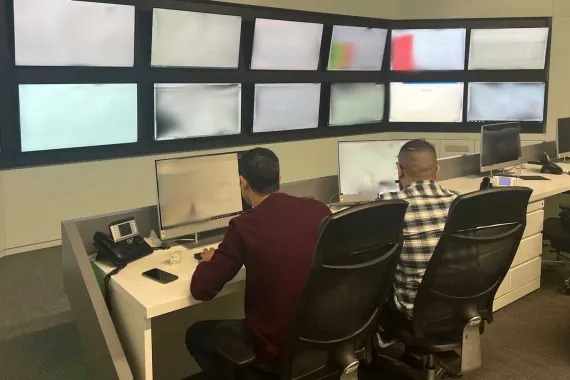In the midst of Israel’s assault on Gaza, a group of unsung heroes is risking life and limb to maintain vital telecommunication networks. The daring tale of Ahmad, a PalTel electrician who navigated through intense bombing to repair a critical data center, highlights the extraordinary sacrifices made by the 750 PalTel staff in Gaza. Despite the staggering personal toll, these telecom heroes persist in their mission to ensure connectivity in the war-torn region.
A Perilous Mission Amidst Aerial Bombardment
Ahmad’s story is just one among many in the telecommunications workforce, where routine maintenance trips involve navigating through Israeli aerial bombardment. The urgency of Ahmad’s mission, repairing a generator to sustain communication in the Sheikh Radwan district, exemplifies the critical role played by these unsung heroes. Their dedication is fueled by the knowledge that a functioning network can be a lifeline, enabling ambulances to reach the injured and potentially saving lives.
High Costs and Personal Sacrifices
The toll on PalTel staff has been high, with at least five members losing their lives in Israeli attacks. Samir, a dedicated worker, lost his life just 15 minutes after returning home from a grueling 10-hour shift. The personal sacrifices extend beyond the workplace, with many staff members mourning the loss of family members, including wives and children. Despite the grim circumstances, these telecom heroes persevere, recognizing the indispensable role of communication networks in facilitating rescue services and documenting the harsh realities on the ground.
Infrastructure Preparedness in the Face of Conflict
PalTel’s CEO, Abdul Majeed Melhem, reveals the company’s extensive preparations for war, spanning over 15 years. The unique challenges imposed by Israel’s siege on Gaza prompted the construction of a resilient telecom network. Unlike typical networks, PalTel buries its cables up to 8 meters deep, and its data centers boast three layers of redundancy – generators, solar panels, and batteries. However, despite these precautions, the sheer scale of recent bombings has still taken a toll, with approximately 70 percent of the mobile network offline.
As the conflict rages on, PalTel staff in Gaza face relentless danger, from their homes to the field. Rabih, a fiber optics technician, vividly describes the risks involved in repairing cables near the border, where a single mistake could prove deadly. The solidarity between staff in the West Bank and Gaza is palpable, with the former hesitant to request field checks, understanding the potential life-threatening implications. Ultimately, the fate of Gaza’s communication network rests in the hands of Israel, highlighting the delicate balance between maintaining connectivity and the ongoing conflict’s devastating impact on the people of Gaza.















